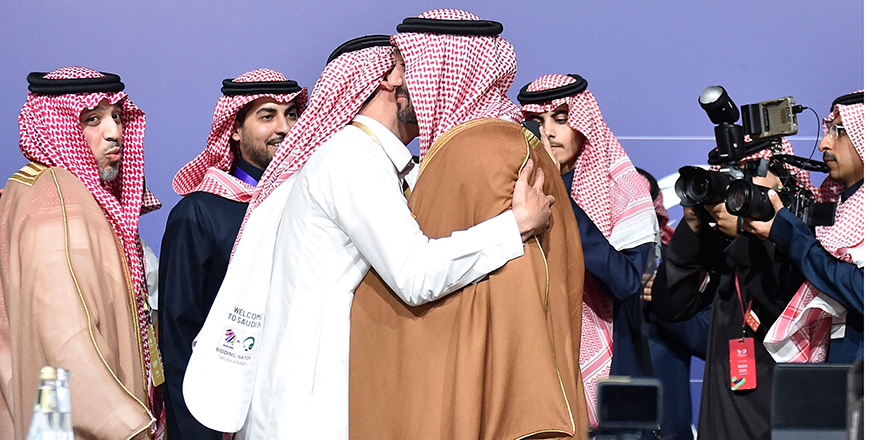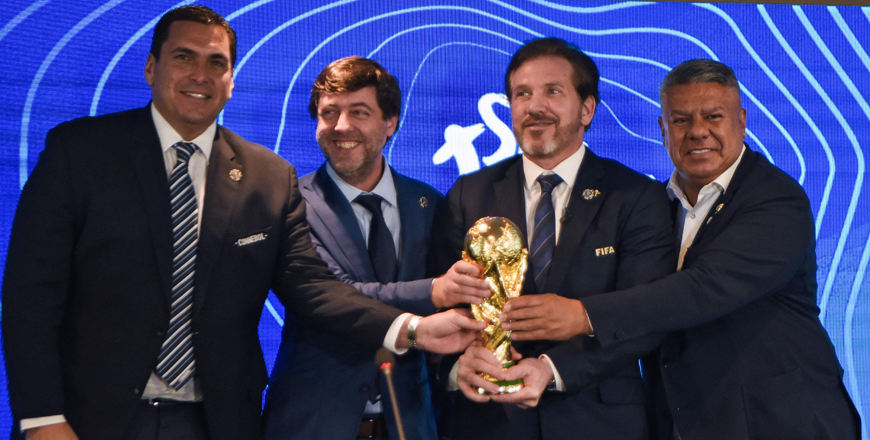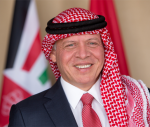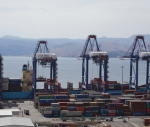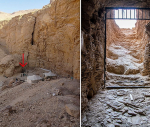You are here
North America or Morocco for 2026 World Cup
By AFP - Jun 12,2018 - Last updated at Jun 12,2018
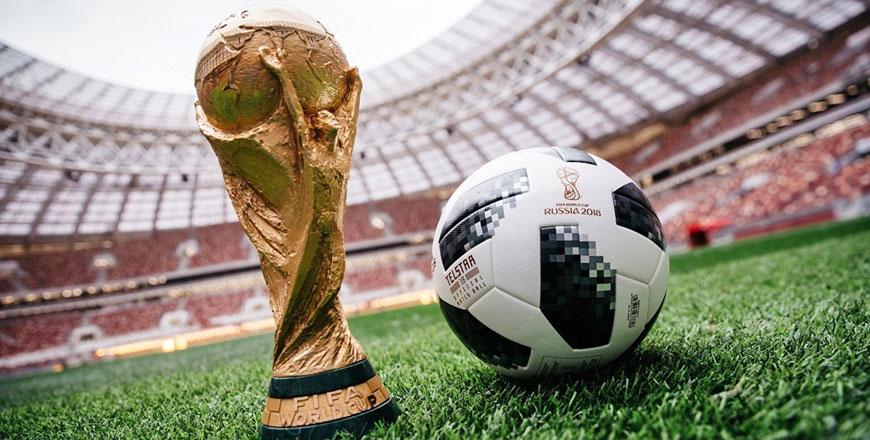
On the eve of the 2018 World Cup in Russia, FIFA members will decide whether the 2026 World Cup will be awarded to North America or Morocco (AFP photo)
MOSCOW ― FIFA members will decide on Wednesday whether the 2026 World Cup should be played in North America or return to Africa for just the second time, in Morocco.
The choice is clear — between a slick bid based on gleaming stadiums in the United States, Mexico and Canada or an ambitious attempt from Morocco based on largely unbuilt facilities.
On the eve of the 2018 World Cup in Russia, 207 FIFA member nations will cast their vote in a congress of world football’s governing body.
Morocco’s bid for 2026 was only cleared to advance to the runoff vote earlier this month, despite a FIFA evaluation report which classified the north African nation’s stadia, accommodation and transport as “high risk”.
The report left the US-Canada-Mexico bid as the clear front-runner after giving it a rating of four out of a possible five.
Morocco received only 2.7 out of five, but advanced despite red flags being raised over several critical components of the bid.
A FIFA summary of the bid task force’s findings warned that “the amount of new infrastructure required for the Morocco 2026 bid to become reality cannot be overstated”.
Referendum on Trump?
But the North American bid has been dogged by concerns that the vote could become a referendum on the popularity of US President Donald Trump.
On Monday, bid leader Carlos Cordeiro repeated a message he has hammered out again and again in recent months ― vote on us, not Trump.
“We believe strongly that this decision will be made on its merits,” Cordeiro said in a conference call with reporters. “This is not geopolitics, we’re talking about football and what is fundamentally, at the end of the day, the best interest of football and our footballing community... We’ve had no backlash.”
The US lost out to Qatar in 2022 in a vote now tarnished by corruption allegations which spelled the beginning of the end of the once all-powerful FIFA president Sepp Blatter.
Critics of the Morocco bid also point to the fact that the 2026 World Cup will be the first to be expanded to 48 teams, posing a severe test for the hosts.
Fourth time lucky?
But the north Africans are still considered to be in with a genuine chance.
It has tried, and failed, four times before, in votes for the 1994, 1998, 2006 and 2010 tournaments ― it lost out in the latter to South Africa, the only African nation ever to have hosted football’s global showpiece.
Morocco has the support of many European countries, attracted by its geographical proximity, and most of Africa, in line with a call from the head of the Confederation of African Football, Ahmad Ahmad.
But two English-speaking African countries, Liberia and South Africa, have defected to the North America bid.
Morocco’s bid leader Moulay Hafid Elalamy says the bid is based on the “fervour for football in the country and the entire African continent” and promises all the host cities will be less than an hour’s flight apart.
North American bid leaders countered by promising to deliver a record $11 billion profit.
Cordeiro said: “Our vision is a very simple one. We offer FIFA an unprecedented united opportunity to stage the 2026 World Cup. We believe strongly that this decision will be made on its merits.”
FIFA President Gianni Infantino is believed to strongly support the North American bid because the three countries involved backed him for the presidency in 2016 when he took over after the reign of Blatter, who is being investigated in Switzerland for alleged corruption.
Although the FIFA evaluation report clearly assessed North America as the superior bid, it was not necessarily a knockout blow for Morocco.
In 2010, a FIFA evaluation committee flagged Qatar’s bid for 2022 as “a health risk for players, spectators, officials” over ferocious heat in the Gulf state in June and July.
Qatar duly won the vote in a shock result in Zurich; FIFA later moved the tournament to November and December 2022.
The corruption-tainted nature of the 2010 vote prompted FIFA to overhaul its bidding process for the World Cup.
Whereas previously the 24 members of the FIFA executive committee used to determine World Cup races, now the hosts will be decided by a vote of 207 individual FIFA member nations.
Related Articles
LAUSANNE — FIFA on Wednesday confirmed that Saudi Arabia will host the 2034 World Cup, underlining the Gulf kingdom's growing influence in w
LAUSANNE/RIYADH — Morocco, Portugal and Spain will be joint hosts for the 2030 World Cup, but games will also be played in Uruguay, Argentin
MONTEVIDEO — Four South American countries will on Tuesday launch an unprecedented joint bid to host the 2030 World Cup with the hope of bri


